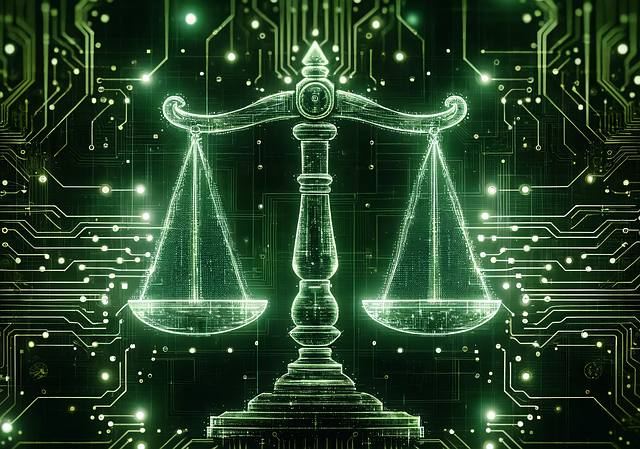Criminal defense attorneys play a vital role in ensuring fairness for individuals facing criminal charges, including personal injury claims. They navigate legal systems, interpret laws, and gather evidence to challenge prosecution claims, aiming for favorable outcomes like avoiding indictment or charge reductions. In personal injury cases, building a strong claim requires medical records and witness statements, while criminal defense strategies involve questioning witnesses, examining proof, and leveraging expert testimony to create reasonable doubt. Specialized white-collar crime attorneys exploit legal loopholes and procedural errors, ensuring clients receive fair trials backed by robust legal arguments. Expert testimony is key in complex cases, offering impartial analyses that can sway outcomes and potentially avoid indictments.
Criminal defense attorneys play a crucial role in ensuring fairness and protecting individuals’ rights within the criminal justice system. This article delves into the essential duties and strategies employed by these legal experts. We explore the process of building a robust defense, focusing on the evidence required for personal injury claims, which is vital to mounting an effective challenge against accusations. Additionally, we discuss legal tactics to counter prosecution arguments and highlight the impact of expert testimony in shaping the outcome of criminal trials.
- Understanding the Role of Criminal Defense Attorneys
- Building a Strong Case: Evidence Needed for Personal Injury Claims
- Legal Strategies to Challenge Accusations Effectively
- The Importance of Expert Testimony in Criminal Trials
Understanding the Role of Criminal Defense Attorneys

Criminal Defense Attorneys play a pivotal role in safeguarding the rights and interests of individuals accused of crimes. Their primary responsibility is to ensure that their clients receive a fair trial, protecting them from what could be life-altering consequences, including lengthy prison sentences or even the death penalty. These attorneys are instrumental in navigating the complex legal system, where they must understand and interpret laws, regulations, and constitutional rights.
One key aspect of their work involves gathering and examining evidence, which is crucial for mounting a strong defense strategy. Similar to how personal injury claims require substantial evidence to prove liability and damages, criminal cases necessitate thorough investigation and analysis of all available data. Defense attorneys must be adept at challenging the prosecution’s evidence and presenting alternative narratives, aiming for outcomes such as avoiding indictment, complete dismissal of all charges, or significantly reduced sentences in high-stakes cases.
Building a Strong Case: Evidence Needed for Personal Injury Claims

Building a strong case for personal injury claims requires gathering comprehensive and compelling evidence. In such cases, documenting the extent of injuries and damages is crucial. Medical records, including diagnoses, treatment plans, and prognosis, play a significant role in demonstrating the physical and emotional toll suffered by the victim. Additionally, witness statements provide firsthand accounts of the incident, enhancing the credibility of the claim.
The general criminal defense strategy often involves presenting a robust body of evidence to support his clients’ innocence or mitigate liability. For challenging defense verdicts, attorneys must be adept at questioning witnesses, examining physical proof, and utilizing expert testimony. The goal is to create reasonable doubt in the jury’s mind while navigating complex legal procedures and ensuring his clients receive fair representation.
Legal Strategies to Challenge Accusations Effectively

Criminal defense attorneys employ various legal strategies to challenge accusations effectively, which often hinges on a thorough understanding of the evidence needed for a personal injury claim. In cases involving white collar crimes, where intricate financial transactions and complex documentation are at play, attorneys must scrutinize every detail to construct a compelling defense. They may challenge the admissibility of evidence, question witness credibility, and exploit procedural errors to achieve a complete dismissal of all charges for their clients.
By leveraging legal loopholes, examining investigative procedures, and presenting alternative interpretations of facts, these lawyers can undermine the prosecution’s case. Their goal is not just to mitigate punishment but to ensure their clients receive a fair trial based on solid legal arguments and the proper application of laws. This strategic approach requires meticulous preparation and a deep knowledge of both criminal procedure and the specific circumstances surrounding the alleged offense.
The Importance of Expert Testimony in Criminal Trials

In criminal trials, expert testimony plays a pivotal role in shaping the outcome. It provides an impartial analysis of complex evidence and offers insights that can be crucial for both prosecution and defense. For Criminal Defense Attorneys, understanding how to leverage expert witnesses is essential, especially when facing charges as severe as white-collar or economic crimes. These cases often involve intricate financial transactions and specialized knowledge, making expert testimony indispensable in navigating the legal landscape.
The significance of expert opinions cannot be overstated, particularly when presenting a case for a complete dismissal of all charges. Effective use of such testimony can help clarify ambiguous evidence needed for a personal injury claim, swaying jurors and judges alike. By providing context and expertise, defense attorneys can counter complex prosecution arguments and, in some cases, even avoid indictment altogether.
Criminal defense attorneys play a vital role in ensuring fairness within the criminal justice system. By understanding their unique responsibilities, from challenging accusations to leveraging expert testimony, these legal professionals protect individuals’ rights and navigate complex cases. Moreover, building a robust case, including gathering the essential Evidence Needed for a Personal Injury Claim, is crucial for achieving favorable outcomes. This comprehensive approach ensures that justice is served while safeguarding the interests of those facing criminal charges.






